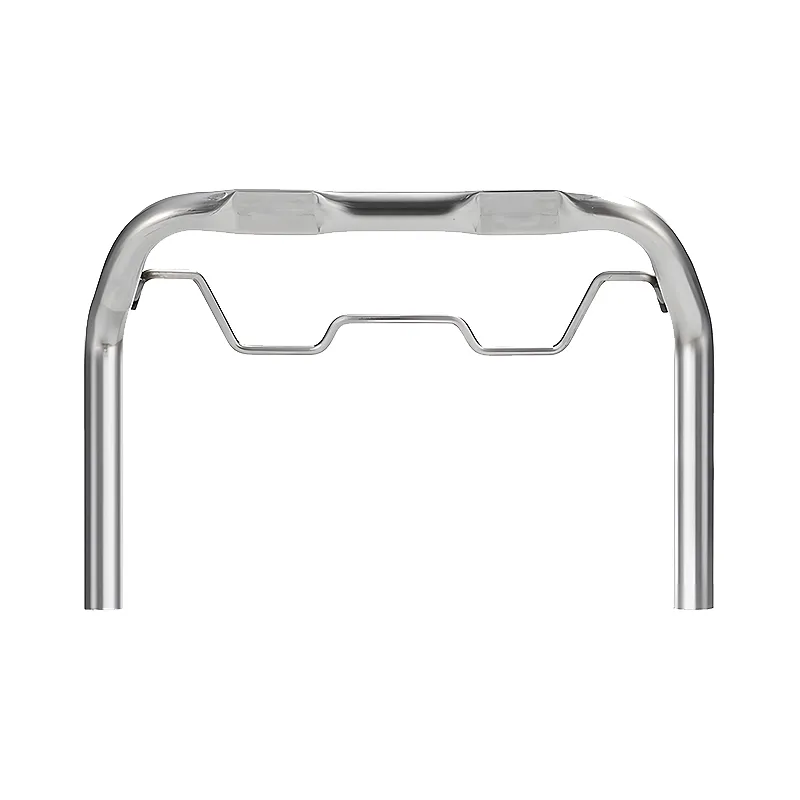High-Quality Precision Metal Tubing for Various Industrial Applications and Custom Solutions
Dec . 21, 2024 04:38
The Versatility of Precision Metal Tubing in Modern Applications
Precision metal tubing has become a cornerstone in various industries, known for its exceptional strength, durability, and dimensional accuracy. From aerospace to medical applications, the demand for high-quality tubing solutions continues to grow, driven by the need for more efficient and effective products. This article delves into the significance, manufacturing processes, and applications of precision metal tubing, shedding light on its pivotal role in modern engineering.
Understanding Precision Metal Tubing
Precision metal tubing is characterized by its tight tolerances and surface finishes, which make it suitable for high-performance applications. It is typically produced from materials such as stainless steel, aluminum, titanium, and other alloys, each chosen for its specific mechanical properties. The tubing is often used in situations where precise dimensions are critical, as even minor deviations can lead to compromised functionality.
This type of tubing is commonly manufactured through processes such as cold drawing, where metal is pulled through a die to achieve the desired diameter and wall thickness, while maintaining high strength and excellent surface quality. Other methods include seamless extrusion, which is especially useful for creating tubes without welded seams, thus enhancing their structural integrity.
Key Applications
1. Aerospace Industry
In aerospace engineering, precision metal tubing is essential for various structural and fluid transfer applications. The tubing's ability to withstand extreme temperatures and pressures makes it ideal for fuel lines, hydraulic systems, and airframe components. The lightweight nature of aluminum tubing is particularly advantageous, allowing for enhanced fuel efficiency in aircraft design.
2. Medical Devices
Precision tubing is crucial in the medical field, particularly in the production of instruments and devices that require sterilization. Applications include catheters, syringes, and endoscopes. The stringent regulatory requirements in the medical industry necessitate that tubing is manufactured from biocompatible materials, ensuring patient safety. Precision in diameter and wall thickness is essential to ensure proper functionality and accuracy in medical treatments.
precision metal tubing
3. Automotive Sector
The automotive industry relies on precision metal tubing for various applications, such as exhaust systems, fuel lines, and brackets. With the rise of electric and hybrid vehicles, lightweight and durable tubing is vital for energy efficiency and overall vehicle performance. Additionally, tubular structures are increasingly used in chassis designs to enhance strength while reducing weight.
4. Industrial Applications
In manufacturing and industrial settings, precision metal tubing is commonly utilized in robotics, conveyor systems, and pneumatic controls. The reliability of precision tubing ensures that systems operate smoothly and efficiently, leading to increased productivity. Custom shapes and sizes can be fabricated to fit specific requirements, making it a versatile option for various machinery and equipment.
Benefits of Precision Metal Tubing
Using precision metal tubing offers numerous advantages. Its high strength-to-weight ratio allows for reduced material usage without compromising performance, leading to cost savings and enhanced efficiency. The precision of the manufacturing process ensures a perfect fit in complex assemblies, decreasing assembly time and improving overall product reliability.
Additionally, the resistance of precision metal tubing to corrosion and extreme environmental factors prolongs its lifespan, lowering maintenance costs. The ability to customize sizes and finishes further enhances its usability across different applications.
Conclusion
Precision metal tubing plays a pivotal role in advancing modern technology across multiple industries. Its unique properties, combined with state-of-the-art manufacturing processes, make it indispensable in applications that demand high-performance materials. As industries continue to evolve and innovations emerge, the importance of precision metal tubing will only grow, solidifying its position as a critical component in engineering, manufacturing, and product development. Whether in aerospace, medical, automotive, or industrial applications, precision metal tubing exemplifies the fusion of quality and innovation, paving the way for future advancements.
 Afrikaans
Afrikaans  Albanian
Albanian  Amharic
Amharic  Arabic
Arabic  Armenian
Armenian  Azerbaijani
Azerbaijani  Basque
Basque  Belarusian
Belarusian  Bengali
Bengali  Bosnian
Bosnian  Bulgarian
Bulgarian  Catalan
Catalan  Cebuano
Cebuano  Corsican
Corsican  Croatian
Croatian  Czech
Czech  Danish
Danish  Dutch
Dutch  English
English  Esperanto
Esperanto  Estonian
Estonian  Finnish
Finnish  French
French  Frisian
Frisian  Galician
Galician  Georgian
Georgian  German
German  Greek
Greek  Gujarati
Gujarati  Haitian Creole
Haitian Creole  hausa
hausa  hawaiian
hawaiian  Hebrew
Hebrew  Hindi
Hindi  Miao
Miao  Hungarian
Hungarian  Icelandic
Icelandic  igbo
igbo  Indonesian
Indonesian  irish
irish  Italian
Italian  Japanese
Japanese  Javanese
Javanese  Kannada
Kannada  kazakh
kazakh  Khmer
Khmer  Rwandese
Rwandese  Korean
Korean  Kurdish
Kurdish  Kyrgyz
Kyrgyz  Lao
Lao  Latin
Latin  Latvian
Latvian  Lithuanian
Lithuanian  Luxembourgish
Luxembourgish  Macedonian
Macedonian  Malgashi
Malgashi  Malay
Malay  Malayalam
Malayalam  Maltese
Maltese  Maori
Maori  Marathi
Marathi  Mongolian
Mongolian  Myanmar
Myanmar  Nepali
Nepali  Norwegian
Norwegian  Norwegian
Norwegian  Occitan
Occitan  Pashto
Pashto  Persian
Persian  Polish
Polish  Portuguese
Portuguese  Punjabi
Punjabi  Romanian
Romanian  Samoan
Samoan  Scottish Gaelic
Scottish Gaelic  Serbian
Serbian  Sesotho
Sesotho  Shona
Shona  Sindhi
Sindhi  Sinhala
Sinhala  Slovak
Slovak  Slovenian
Slovenian  Somali
Somali  Spanish
Spanish  Sundanese
Sundanese  Swahili
Swahili  Swedish
Swedish  Tagalog
Tagalog  Tajik
Tajik  Tamil
Tamil  Tatar
Tatar  Telugu
Telugu  Thai
Thai  Turkish
Turkish  Turkmen
Turkmen  Ukrainian
Ukrainian  Urdu
Urdu  Uighur
Uighur  Uzbek
Uzbek  Vietnamese
Vietnamese  Welsh
Welsh  Bantu
Bantu  Yiddish
Yiddish  Yoruba
Yoruba  Zulu
Zulu 












